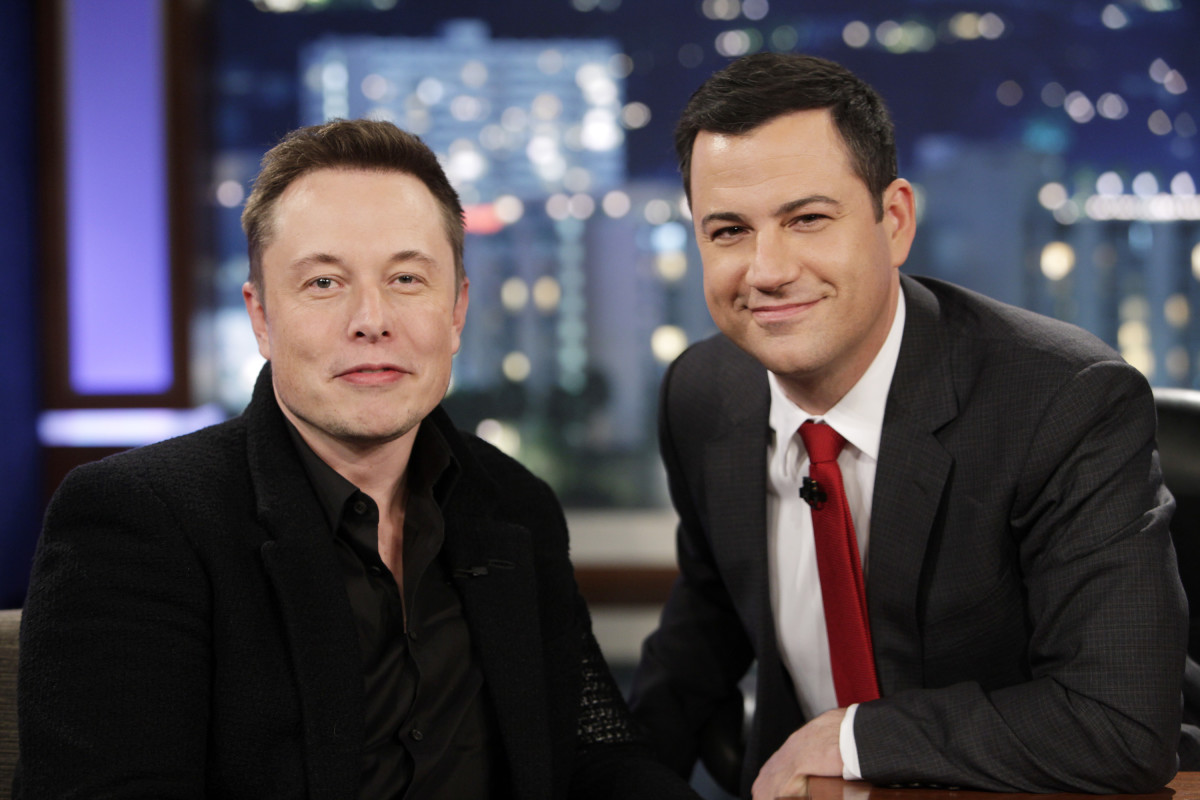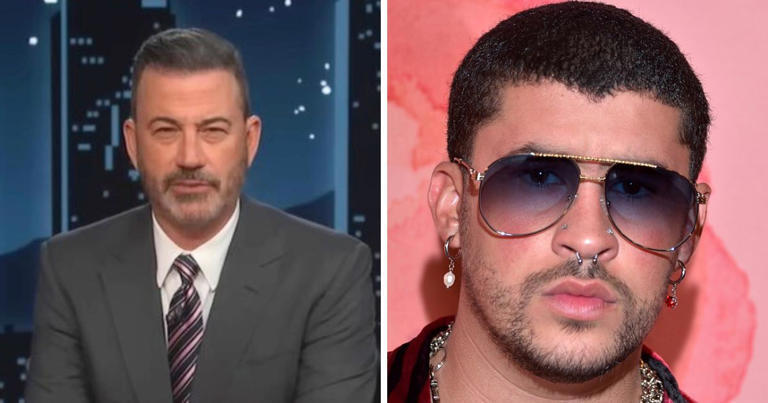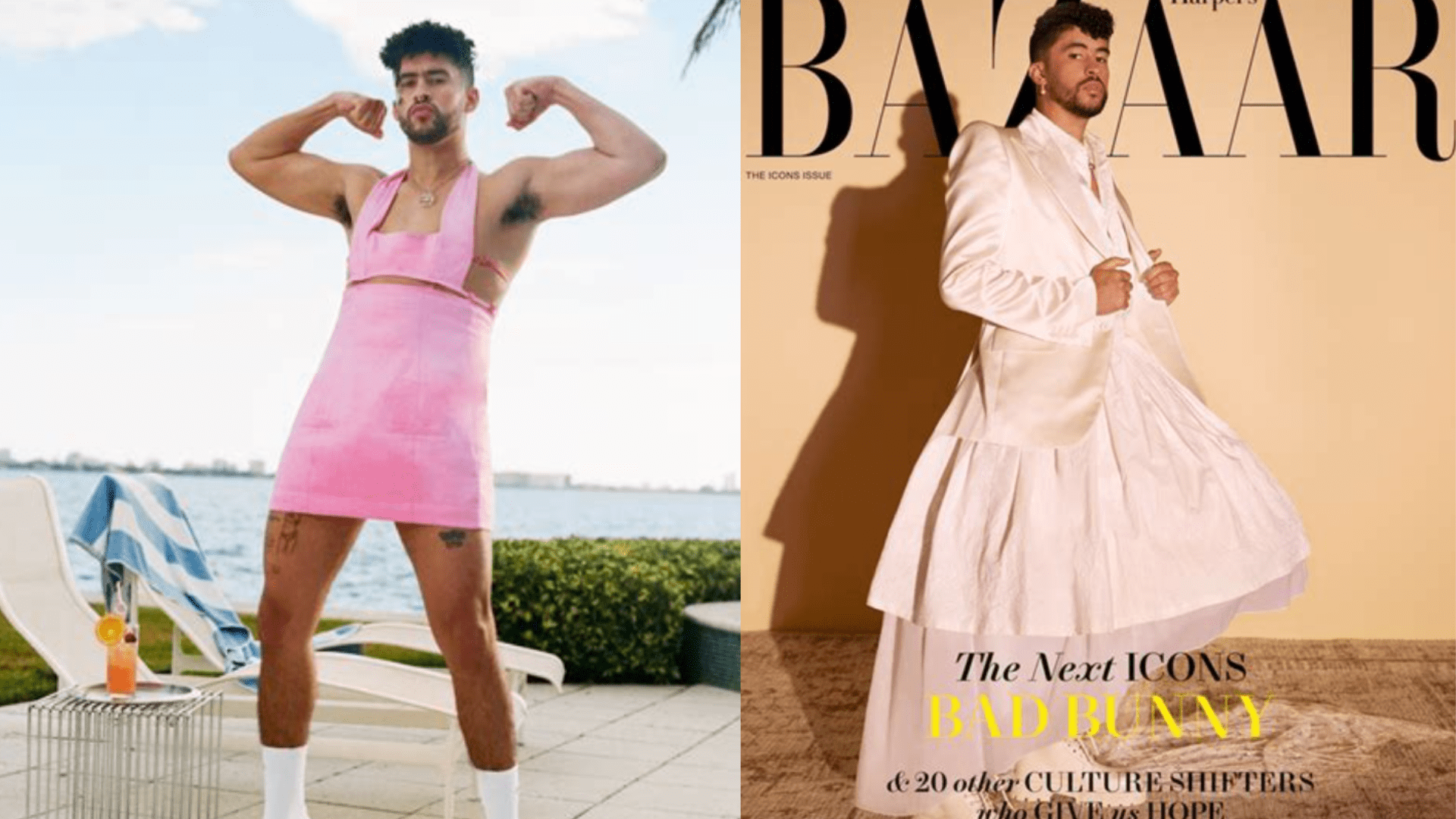It began with a headline too bold to ignore.
“Elon Musk threatens to pull $40 million in Super Bowl sponsorships if Bad Bunny headlines the 2026 halftime show.”
It had everything — money, power, pop culture, and the perfect villain. Within hours, the claim was everywhere: clipped into tweets, repackaged into TikToks, echoed by pages with millions of followers.
Then came the late-night counterpunch.
Jimmy Kimmel, grinning behind his desk, delivered the line that would light up social media:

“Elon Musk doesn’t own the Super Bowl — and he sure as hell doesn’t own Bad Bunny.”
The audience exploded. Clips racked up millions of views.
It was the moment rumor became entertainment — and entertainment became truth.
But here’s the twist: the story that started it all was never true.
Act I — The Rumor That Sold Better Than Reality
In early October, several pop culture sites claimed that Elon Musk had “issued an ultimatum” to the NFL, threatening to pull tens of millions in sponsorships if Bad Bunny remained the halftime headliner for 2026.
But when fact-checkers stepped in, the whole story collapsed.
Meaww and PolitiFact both found no evidence of any such threat — no statement, no email, no paper trail. In fact, even one supposed co-conspirator, Coca-Cola, isn’t an active Super Bowl sponsor at all.

The supposed “boycott” never existed. The money was never on the table.
And yet, by the time the truth surfaced, the damage was done.
The headline had already outperformed the correction — a symptom of today’s attention economy, where outrage moves faster than facts.
Act II — The Joke That Hit a Nerve
Still, Kimmel’s monologue struck something deeper than clickbait.
Because even if the rumor was false, the tension it exposed was very real.
Bad Bunny isn’t just another halftime act. He’s a symbol of a cultural shift — Latin, multilingual, unapologetically global. His rise represents the new mainstream of American entertainment, one that no longer bends to the “English-only” ideal of the old guard.
That’s what made the rumor so potent: it played into a familiar anxiety — that certain voices, certain faces, don’t belong on America’s biggest stage.
Kimmel’s jab at Musk wasn’t just comedy. It was defiance.
A message to the billionaires and power brokers who think ownership equals influence.
It was, in its own strange way, a cultural line in the sand.

Act III — When Truth Becomes Optional
The Musk–Bad Bunny episode is less about one fake headline than about a media system that rewards the false ones.
In this new ecosystem, facts are negotiable, attention is currency, and the loudest story wins — at least until someone checks the receipts.
The irony? Even after the debunking, the idea of Musk trying to silence a global Latin artist felt so believable that many refused to let it go. It confirmed their suspicions, aligned with their fears, and gave them something to rally against.
That’s the dark brilliance of modern misinformation: it doesn’t have to be real to be right on time.
Act IV — The Echo Beyond the Lie
And yet, within all that noise, something true managed to survive.
Kimmel’s viral punchline — whether aimed at a ghost story or not — became a statement about who owns culture.

Not corporations.
Not billionaires.
Not even the algorithms that decide what we see.
But the artists who dare to stand on the world’s biggest stages — in their own language, with their own truth.
Epilogue — A Lie That Told the Truth
Maybe Elon Musk never picked up the phone.
Maybe no $40 million threat was ever made.
But the world’s reaction to that phantom phone call — the panic, the outrage, the applause — revealed something more telling than any fact-check could:
that in 2025, truth itself has become a performance.
And Jimmy Kimmel, standing on his late-night stage, simply held up a mirror.